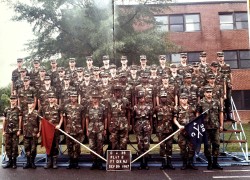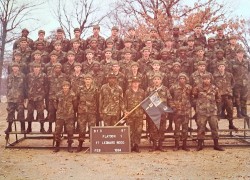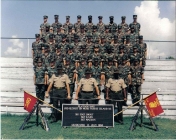Specialty Summary. Installs, inspects, repairs, and modifies biomedical equipment and support systems. Performs pre-purchase evaluations of medical devices and advises on operational theory, underlying physiological principles, and safe clinical applications of biomedical equipment. Implements organizational maintenance support for all medical devices used within the medical treatment facility (MTF), medical research laboratories, air transportable hospitals and clinics, and contingency hospitals. Provides technical guidance and intermediate maintenance support on medical equipment systems when assigned to a regional Medical Equipment Repair Center (MERC). Directs the facility management program when assigned.
Duties and Responsibilities:
Assembles, installs, and inspects new biomedical equipment. Assembles equipment and conducts pre-operational tests to verify compliance with medical and technical standards, specifications, contracts, and regulatory guidance. Installs or coordinates the installation of medical equipment that requires interface with other devices or with the facility. Resolves installation and associated maintenance support problems. Performs formal acceptance testing of complex medical equipment and installations such as diagnostic radiology systems and physiological monitoring systems. Performs pre-procurement surveys, and provides technical advice regarding the purchase of new biomedical equipment systems and the required facility interface requirements.
Inspects, services, and modifies biomedical equipment and support systems. Inspects biomedical equipment systems to determine operational status and compliance with technical standards and specifications. Performs or supervises preventive maintenance tasks such as lubrication; mechanical adjustment; and replacement of filters, tubing, and other parts subject to deterioration. Evaluates user maintenance procedures and ensures safe medical equipment practices are exercised. Instructs and advises personnel in the care and safe, effective use of medical equipment. Calibrates medical equipment according to manufacturers' technical literature, pertinent federal regulations, national standards, state and local laws, and Air Force guidance. Applies electrical, electronic, optical, mechanical, pneumatic, hydraulic, and physiological principles to diagnose and locate system malfunctions. Uses test equipment, technical data, engineering drawings, schematics, and reference materials for troubleshooting and repair of medical equipment. Performs authorized modifications to biomedical equipment.
Performs safety inspections. Inspects and tests medical and patient-related non-medical equipment for compliance with current safety standards. Inspects and tests supporting utility systems and specialized environment control systems of the medical facility for compliance with electrical and patient safety codes and standards. Identifies deficient equipment, initiates corrective action, and informs personnel of possible safety hazards.
Performs maintenance management and administrative functions. Develops and directs methods and procedures to be used in the maintenance activity. Determines the type, extent, and feasibility of repairs; and implements repair or condemnation procedures. Performs tasks relating to collecting and recording historical maintenance data. Quality controls reports to ensure accuracy of bench stock balance records and historical maintenance records (HMRs). Revises preventive maintenance and calibration cycles based on Air Force regulations, manufacturers' literature, and local conditions. Administers the medical equipment warranty and guarantee program. Develops statements of work (SOWs) and manages the medical equipment contract maintenance program. Ensures availability and control of spare parts, test equipment, and tools.
Manages facility management programs. Senior technicians and superintendents may be assigned as facility managers. Manages safety, resource protection, security, energy conservation, fire protection, communications, housekeeping, and facility maintenance programs. Maintains liaison with base agencies such as civil engineering (CE), communications, and contracting to acquire services for operation and maintenance of the facility, the installed equipment, and utility systems. Coordinates construction, maintenance, and facility alteration projects. Performs quality assurance evaluations of work completed by base agencies and contractors. Supervises maintenance of hospital environment and housekeeping. Conducts periodic inspections of the MTF and evaluates issues relating to maintenance, safety, fire protection, and disaster planning to ensure compliance with National Fire Protection Association (NFPA) codes and Joint Commission on Accreditation of Healthcare Organizations (JCAHO) standards. Verifies reimbursements to CE and contractors, and accumulates cost data to support facility budget requests.
Specialty Qualification:
Knowledge. Knowledge is mandatory of: physiology; electrical, electronic, mechanical, optical, hydraulic, pneumatic, and radiation principles that apply to biomedical equipment systems; using and interpreting national safety and accrediting standards, blueprints, and Air Force publications; equipment systems application in medicine; and medical safety procedures.
Education. For entry into this specialty, completion of high school or general educational development equivalency with courses in algebra, trigonometry, mechanics, mechanical theory, general sciences, anatomy, or biology is desirable.
Training. For award of AFSC 4A231, completion of the basic biomedical equipment maintenance course is mandatory.
Experience. The following experience is mandatory for award of the AFSC indicated:
4A251. Qualification in and possession of AFSC 4A231. Also, experience in functions such as installing, inspecting, calibrating, modifying, and repairing biomedical equipment support systems.
4A271. Qualification in and possession of AFSC 4A251. Also, experience supervising functions such as installing, calibrating, repairing, or modifying biomedical equipment systems.
4A291. Qualification in and possession of AFSC 4A271. Also, experience managing functions such as installing, calibrating, repairing, or modifying biomedical equipment systems.
Other. The following are mandatory as indicated: For entry into this specialty: Normal color vision as defined in AFI 48-123, Medical Examinations and Standards. A minimum age of 18 years prior to entry into technical training. For award and retention of AFSCs 4A231/51/71/91/00, must maintain an Air Force Network License according to AFI 33-115, Vol 2, Licensing Network Users and Certifying Network Professionals.




